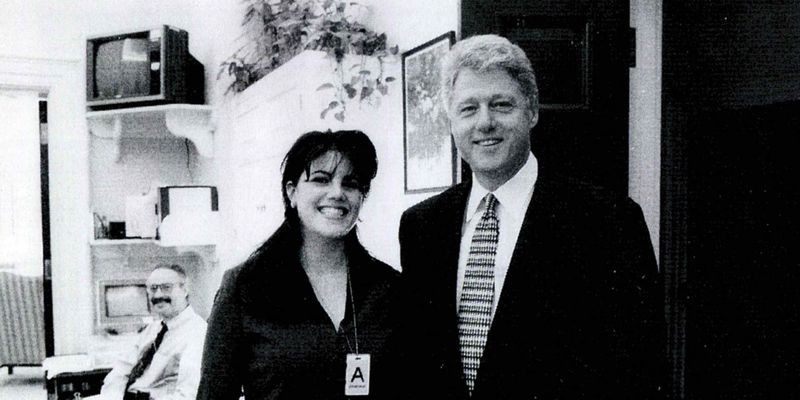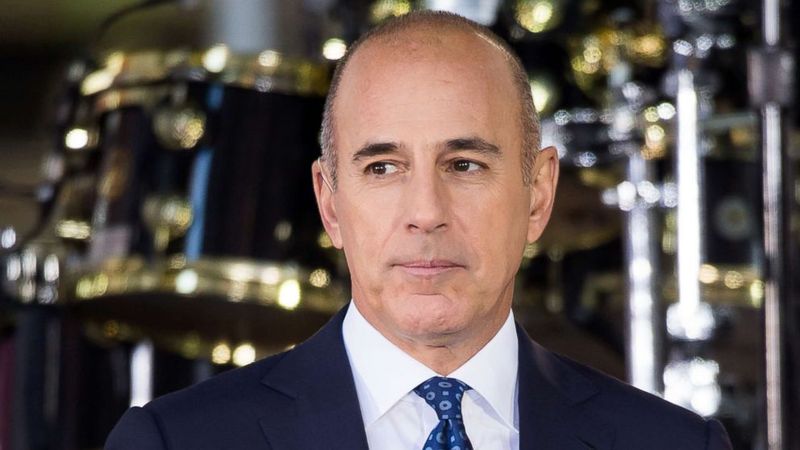When careers fall apart, it’s rarely because of just one bad day. After six months of digging through 23 high-profile (and some low-profile) career meltdowns—from disgraced CEOs to rising stars who flamed out—I started seeing unsettling patterns. Here’s what I uncovered.
1. The “Too Fast, Too Soon” Syndrome
Rising through the ranks swiftly can feel exhilarating, but it often comes with hidden pitfalls. Rapid promotions create pressure that many find overwhelming. Without the right support, early success can lead to burnout and frustration. The constant stress of meeting high expectations without adequate experience can take its toll. In many cases, those who skyrocket quickly find themselves crashing just as fast. Over time, the dream of rapid advancement turns into a nightmare of unmet expectations and unmanageable stress. A cautionary tale for those eager to climb the career ladder too quickly.
2. Ignoring Soft Skills Was a Silent Killer
The value of technical brilliance often diminishes without strong soft skills. Poor communication and lack of emotional intelligence fray professional relationships, sometimes irreparably. In corporate landscapes, being technically sound isn’t sufficient when soft skills are missing. Bridges burn faster than any technical mistake. The absence of empathy and effective communication leaves individuals isolated and misunderstood. Over time, this isolation grows, leading to professional alienation. Mastery of soft skills is crucial for those seeking sustained career success in today’s interconnected workplaces.
3. Loyalty to the Wrong People
Sticking with toxic mentors or outdated power structures can derail promising careers. Loyalty is a prized trait, but misplaced loyalty often leads to professional disaster. Many careers falter when individuals remain bound to those whose influence becomes a liability. Watching the career of others crumble due to their misplaced trust is a sobering reminder. It emphasizes the importance of choosing mentors wisely and being adaptable. Learning to recognize when a professional relationship is more hindrance than help is crucial for long-term success.
4. One Bad Tweet Was All It Took
Social media, a powerful tool for personal branding, can also be a career’s downfall. One ill-considered tweet or a careless social media post can ignite digital flames. Careers in the study crumbled under the weight of past indiscretions or tone-deaf comments. The permanence of digital footprints serves as a stark warning. Professionals must navigate social media with caution, understanding that the internet never forgets. The lesson here is clear: in the age of social media, reputation management is more critical than ever.
5. Burnout Wasn’t Just a Buzzword
Burnout is more than a trendy term; it’s a career killer that drains ambition and creativity. Many careers didn’t implode spectacularly; they eroded quietly under chronic stress. The absence of work-life balance leads to physical and mental exhaustion. Constant overwork, without boundaries, hollows out drive and passion. As stress accumulates, enthusiasm wanes, and productivity drops. Understanding the warning signs of burnout and setting healthy boundaries is essential for long-term career sustainability. Recovery is possible, but prevention is key to avoiding career derailment.
6. They Believed Their Own Hype
Self-belief is empowering, but believing one’s own hype can be blinding. Arrogance often leads to a failure in recognizing risks and opportunities for growth. When individuals buy too deeply into their legend, learning halts. The story of those blinded by ego serves as a cautionary tale in humility. Continuous self-reflection and openness to growth are vital. Remaining grounded and acknowledging one’s limitations fosters continuous learning and adaptability. It’s a reminder that confidence, tempered with humility, paves the way for sustained success.
7. No Backup Plan—Ever
Career security is often an illusion, as sudden firings or industry shifts reveal. The lack of a backup plan leaves professionals vulnerable. Those without side projects, savings, or a pivot strategy face dire consequences during unexpected changes. Witnessing careers crumble due to this oversight highlights the importance of preparation. Planning for uncertainties and embracing adaptability ensures resilience. Individuals who diversify skills and maintain a financial cushion navigate career upheavals more gracefully. It’s a call to action to be prepared for the unpredictable nature of work.
8. Success Made Them Untouchable (Until It Didn’t)
Success often masks flaws, creating a false sense of invincibility. When the inevitable fall comes, those who seemed untouchable find themselves unsupported. The absence of allies in times of need underscores the importance of humility. Success should foster, not hinder, relationship building and support networks. This pattern teaches that no level of achievement makes one immune to adversity. Building genuine connections and maintaining humility ensure support when challenges arise. It’s a reminder that success should enhance relationships, not isolate individuals.
9. Romantic Entanglements in the Workplace
Workplace romances, while not uncommon, often lead to complications. Over a third of cases in the study featured secret relationships that ended badly. The mix of personal and professional lives creates tensions and conflicts. When these relationships sour, the fallout affects both reputations and careers. Professionals must carefully navigate such entanglements, understanding the risks involved. Maintaining boundaries and transparency is crucial for avoiding unwanted consequences. This pattern highlights the delicate balance required to manage personal relationships in professional settings.
10. Refusal to Adapt to Technology
Resistance to technological change can be career-limiting. Even in recent years, reluctance to embrace new tools or platforms has cost careers. The ever-evolving technological landscape requires adaptability and willingness to learn. Being open to change becomes a critical skill for survival in modern workplaces. Career longevity hinges on continuous learning and staying abreast of technological advancements. Professionals who resist change often find themselves left behind as industries evolve. This pattern underscores the importance of embracing innovation to remain relevant and competitive.
11. They Stayed Too Long
Staying in one job beyond its expiration often leads to stagnation. Some careers faltered simply because individuals stayed too long in a single position. Over time, complacency and lack of growth opportunities erode enthusiasm. Being in the same environment too long can lead to vulnerability to replacement or resentment. Recognizing when it’s time to move on is crucial for career vitality. Embracing change and seeking new challenges ensures continued professional development. This pattern serves as a reminder to avoid getting too comfortable and prioritize growth.
12. Legal Trouble Came Fast and Hard
Legal issues often strike suddenly, with devastating consequences. From NDAs to insider trading, legal troubles unravel reputations overnight. Careers collapse swiftly once legal battles commence, leaving devastation in their wake. Understanding legal obligations and maintaining ethical standards is crucial. Vigilance in legal matters protects both personal and professional interests. Navigating the legal landscape with care ensures long-term career stability. This pattern emphasizes the importance of legal awareness and ethical conduct in maintaining career longevity.
13. They Were Great…but Terrible to Work With
The ‘brilliant jerk’ archetype, while common, is unsustainable. Many were quietly pushed out of roles due to toxicity, despite talent. Professional success hinges not only on skills but on being pleasant to work with. Toxic behavior erodes team morale, leading to isolation and eventual downfall. Cultivating a supportive and collaborative work environment is paramount. This pattern highlights the importance of interpersonal skills in career success. Being a great colleague fosters a positive atmosphere and enduring professional relationships.
14. One Failed Public Appearance
Public speaking, a daunting task, can make or break careers. Disastrous TED Talks, awkward interviews, or viral blunders have caused significant damage. The pressure of presenting oneself publicly amplifies the risk of error. A single misstep during a public appearance can overshadow accomplishments. Mastering public speaking skills is crucial for confidence and credibility. Preparation and poise ensure successful presentations, protecting reputations. This pattern underscores the importance of effective public communication in maintaining a positive professional image.
15. Oversharing Personal Trauma
Vulnerability, while valuable, requires boundaries. Oversharing personal trauma at work creates discomfort and instability. It’s important to share with discretion and maintain professionalism. While empathy is key, too much personal information can blur boundaries. Finding the balance between being open and maintaining privacy is crucial. This pattern illustrates the importance of context in sharing personal stories. Managing disclosure ensures a supportive yet professional workplace environment. It’s a reminder that professional settings require thoughtful communication and respect for boundaries.
16. They Confused Busyness With Productivity
The misconception that busyness equates to productivity leads to burnout. Many careers ended not with a dramatic exit but with a slow fade into irrelevance. Constant multitasking and overcommitment diminish focus and creativity. The relentless pursuit of busyness detracts from meaningful accomplishments. Recognizing the difference between being busy and being productive is essential. Prioritizing tasks and managing time effectively ensures long-term success. This pattern serves as a reminder to focus on quality over quantity in professional endeavors.
17. They Took Credit…for Everything
Credit hogging breeds resentment and is a career death sentence. Taking credit for others’ work damages trust and team dynamics. Resentment festers, making individuals easy targets during organizational downsizing. Building a collaborative environment based on mutual respect is vital. Sharing credit and acknowledging contributions fosters a positive workplace culture. This pattern highlights the importance of humility and recognition in career success. Being a team player, rather than a credit hoarder, ensures enduring professional relationships.
18. Refused to Learn New Things
In a rapidly evolving world, lifelong learning is essential for survival. Refusal to grow and adapt leaves individuals quickly outdated. Those who resist change find themselves left behind as industries progress. Embracing new knowledge and skills ensures career longevity and relevance. Being open to learning opportunities fosters personal growth and adaptability. This pattern emphasizes the importance of continuous education in a dynamic work environment. Staying current with industry trends and technologies is crucial for remaining competitive.
19. Got Too Political—Internally
Office politics, when navigated poorly, lead to spectacular failures. Aggressive power plays and internal rivalries often backfire. Building alliances based on manipulation undermines trust and collaboration. The fallout from political maneuvering creates a toxic work environment. Prioritizing honesty and integrity fosters a positive corporate culture. This pattern highlights the importance of ethical conduct and collaboration in career advancement. Being strategic without compromising values ensures sustainable professional growth.
20. Didn’t Spot the Company’s Red Flags
Loyalty to struggling companies blinds professionals to red flags. Failure to recognize toxic cultures or financial warning signs often leads to downfall. Remaining in a sinking ship without recognizing danger results in career setbacks. Being vigilant and discerning the health of an organization ensures informed decisions. This pattern serves as a reminder to assess company culture and stability regularly. Understanding when to move on protects career prospects and opportunities for growth. It’s crucial to remain observant and proactive in evaluating workplace dynamics.
21. Caught in a Lie
The discovery of dishonesty, whether minor or major, shatters trust. Resume fraud or exaggerated achievements lead to career collapse when exposed. Lies, once uncovered, create reputational damage that’s difficult to repair. Maintaining honesty and transparency in professional dealings is crucial. Truthfulness fosters trust and credibility, key components of career success. This pattern underscores the importance of integrity in building a sustainable career. Upholding ethical standards ensures long-term professional relationships and opportunities.
22. Thought They Were Indispensable
Believing in one’s indispensability blinds individuals to reality. When employers prove otherwise, careers end abruptly. Overconfidence creates complacency and an unwillingness to adapt. Recognizing that no one is irreplaceable fosters humility and growth. This pattern highlights the importance of staying humble and open to feedback. Embracing change and acknowledging one’s limitations ensure adaptability and resilience. Building a reputation for being versatile and cooperative enhances career longevity. It’s a reminder to remain grounded and aware of evolving workplace dynamics.
23. They Waited Too Long to Reinvent
Professionals who fail to reinvent themselves risk professional stagnation. Clinging to old roles while the world changes results in irrelevance. The fear of change often paralyzes individuals, preventing growth and adaptation. Embracing new challenges and seeking opportunities for reinvention ensures career vitality. This pattern serves as a call to action to embrace change and innovation. Recognizing the need for evolution and acting proactively preserves career relevance. It’s crucial to stay adaptable and open to new possibilities in a dynamic work environment.























